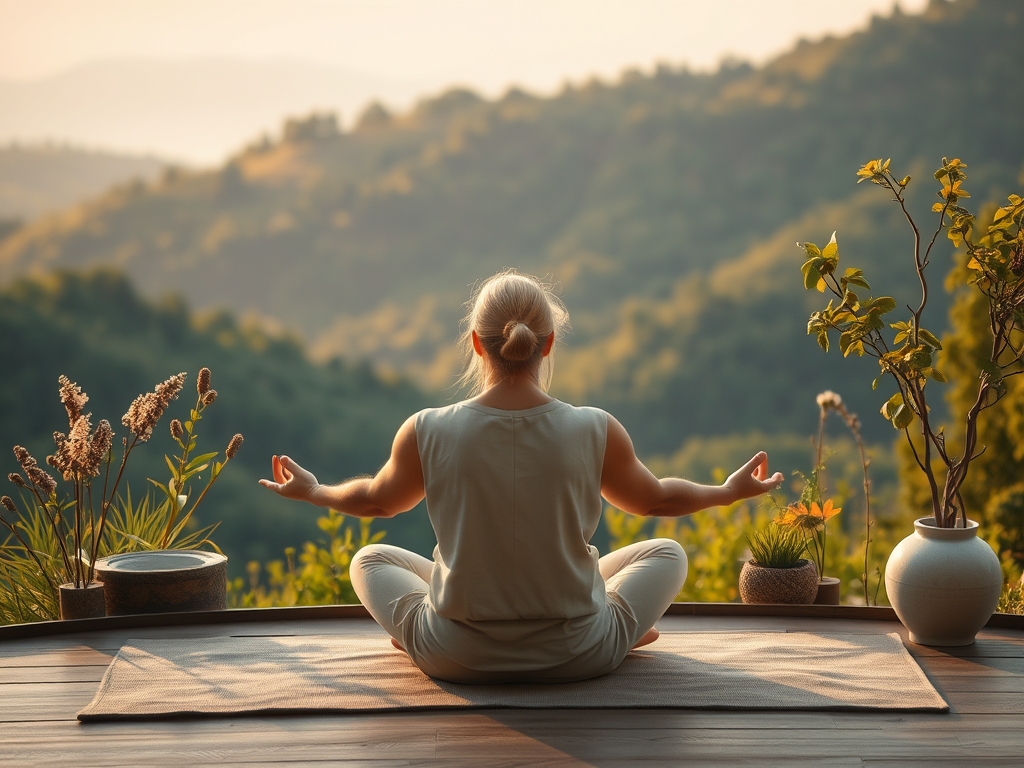
-: HOW CAN I STOP STRESS? :-
In today’s fast-paced life, especially in a country like the United States, where work pressure, traffic, financial planning, and maintaining a family life balance are a major challenge, stress has become a common problem. About 75-80% of people in the world experience some form of stress, and it affects physical and mental health. But don’t worry! In this blog we will share practical ways to reduce stress, healthy diet, meditation techniques, and tips for people, which can help you live a stress-free life.
Table of Contents
-: What is stress and what are its causes? :-
Stress is a reaction of the body and mind, which occurs when we feel pressure. Major causes of stresses include:
- Lack of work-life balance: People in the US in particular often work long hours, leaving little time for family and self.
- Financial Stress: Expensive healthcare, housing, and education costs leave many people with financial worries.
- Social Media and Technology: Constant notifications and the habit of comparing on social media increase mental pressure.
- Uncertainty: Political, economic, and social changes can also cause stress.
In addition, irregular eating habits, lack of sleep, and physical inactivity also increase stressless.

Healthy Living Stage
-: Effects of stress :-
Stress is not only mental, it also affects physical health. The following problems can be caused by stress:
- High blood pressure and heart diseases
- Weak immune system
- Depression and anxiety
- Weight gain or loss
- sleep problems
- To be angry at someone
- Headache
Hence, managing stress is very important, and for this we will share some practical ways.
-: Practical tips to reduce stress :-
1. Meditation and Mindfulness :
Meditation is one of the most effective ways to reduce stress. Many people in the US use techniques such as mindfulness-based stress reduction (MBSR). Here is a simple meditation technique:
- Deep Breathing: Sit in a quiet place. Close the eyes and slowly inhale for 4 seconds, hold for 4 seconds, and exhale for 4 seconds. Do this for 5-10 minutes.
- Mindful Eating: Stay away from TV or phone while eating and savor every bite. This calms your mind.
2. A healthy diet :
Fast food and processed food consumption is very common in the US, but this can increase stress. Eat the following foods to reduce stress:
- Omega-3 Fatty Acids: Salmon, tuna, and flax-seeds are good for brain health. In the US, these foods are easily found at stores like Whole Foods or Trader Joe’s.
- Antioxidant-Rich Foods: Blueberries, spinach, and broccoli reduce inflammation and help manage stress.
- Magnesium-rich foods: Almonds, cashews, and oats calm the mind.
- Herbal Tea: Chamomile and green tea are very popular in the US, which reduce stress.
Tip: Many people in the US do meal prep. Prepare 3-4 healthy meals every Sunday, including quinoa salad, grilled vegetables, and Greek yogurt.
3. physical activity :
Physical activity helps reduce stress because it releases endorphins (happy hormones). People in the US often do the following activities:
- Yoga: Yoga studios are found in every city. You can also do free yoga sessions on YouTube channels like Yoga With Adriene.
- Walking: Walking for 30 minutes every day reduces stress.
- Gym: Working out at a gym like Planet Fitness or 24 Hour Fitness is easy and affordable.
4. Social connection :
People often feel lonely, especially in big cities. To reduce stress:
- Spend time with friends: Many people organize brunch or coffee meetups on weekends.
- Community Events: Join yoga, book clubs, or hiking groups in your city on Meetup.com.
- Family Time: Plan a dinner or game night with the family.
5. Importance of sleep :
People often sleep less, which increases stress. Try the following tips:
- Sleep Routine: Make a schedule to go to bed and wake up at the same time every day.
- Screen-free time: Stay away from mobiles and laptops for 1 hour before going to bed.
- Relaxing Environment: Keep dim lights and a calm environment in the bedroom.
-: A day’s stress-free schedule :-
A day’s stress-free schedule should be balanced, flexible, and enjoyable to promote your mental and physical well-being. Below is a general schedule that you can adjust to suit your needs:
Early Morning (6:30 AM – 9:00 AM)
- 6:30 AM – Wake up: Wake up calmly, avoid using alarm if possible. Do 5-10 minutes of gentle stretching or deep breathing.
- 7:00 AM – Morning Routine: Brush, bathe, and have a nutritious breakfast (such as oats, fruit, or eggs). Enjoy tea/coffee in peace.
- 8:00 AM – Mind Planning: Write a 10 minute diary or set 2-3 main goals for the day. Don’t have too much work pressure.
Morning Time (9:00 AM – 12:00 PM)
- 9:00 AM – Productive time: Focus on the most important work (office, study, or personal project). Follow a cycle of 50 minutes work and 10 minutes break.
- 11:00 AM – Light activity: 10-15 minutes of walking, yoga, or meditation to refresh the mind.
Afternoon (12:00 PM – 3:00 PM)
- 12:30 PM – Lunch: Have a nutritious and light meal (like roti, vegetables, dal, rice). Stay away from phone/TV while eating, savor the food.
- 1:30 PM – Relax: Take a 20-30 minute power nap or sit quietly and read a book/listen to music.
- 2:00 PM – Light work: Answer email, complete small tasks, or do a creative activity (like drawing, writing).
Evening (3:00 PM – 7:00 PM)
- 3:30 PM – Physical activity: 30-45 minutes of exercise (such as walking, jogging, cycling, or dancing). Choose an activity that you enjoy.
- 5:00 PM – Cleverness: Make time for your hobbies (like gardening, cooking, or crafts). Enjoy this time away from the phone.
- 6:30 PM – Dinner: Have a light and easy-to-digest dinner (like khichdi, soup, or salad). Chat with family/friends.
Night (7:00 PM – 10:00 PM)
- 7:30 PM – Relaxation time: Watch a movie, read a book, or spend quality time with family. Try to reduce screen time.
- 9:00 PM – Night routine: warm bath, skin care, and 5-10 minutes of meditation/gratitude journaling.
- 10:00 PM – Sleep: Sleep in a quiet environment. Keep phone/laptop away from bedroom.
minimum Sleep at least 7-8 hours a day
tips :-
- Hydration: Drink enough water throughout the day.
- Flexibility: Leave room for schedule changes; Too much control can increase stress.
- Social Media: Avoid social media for more than 30-60 minutes a day.
- Small pleasures: Add one small activity (like eating ice cream) into the day that makes you happy.
This schedule can be changed according to your lifestyle.
-: NOTES :-
Stress is a normal part of a fast-paced life like the US, but it can be managed by adopting the right ways. Techniques like meditation, healthy diet, physical activity, and time management will help you live a stress-free life. Use the resources and apps available in the US, and make your lifestyle healthier with small changes. At “Healthy Living Stage” we will always be sharing new tips for your health and happiness!
